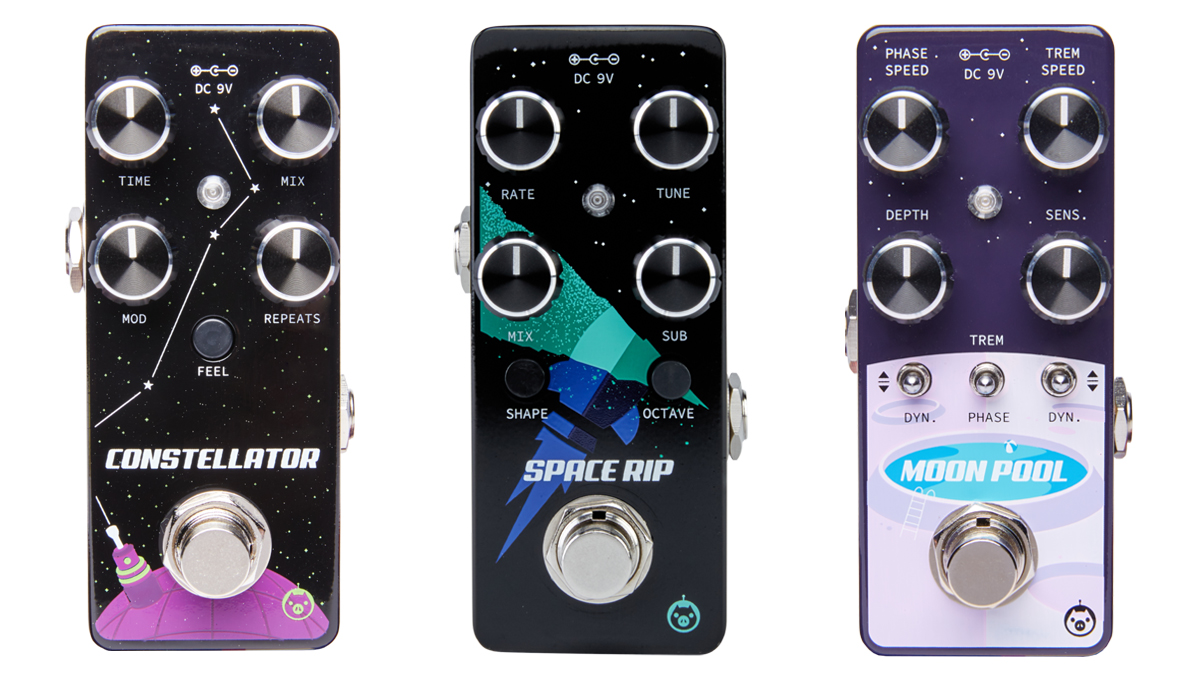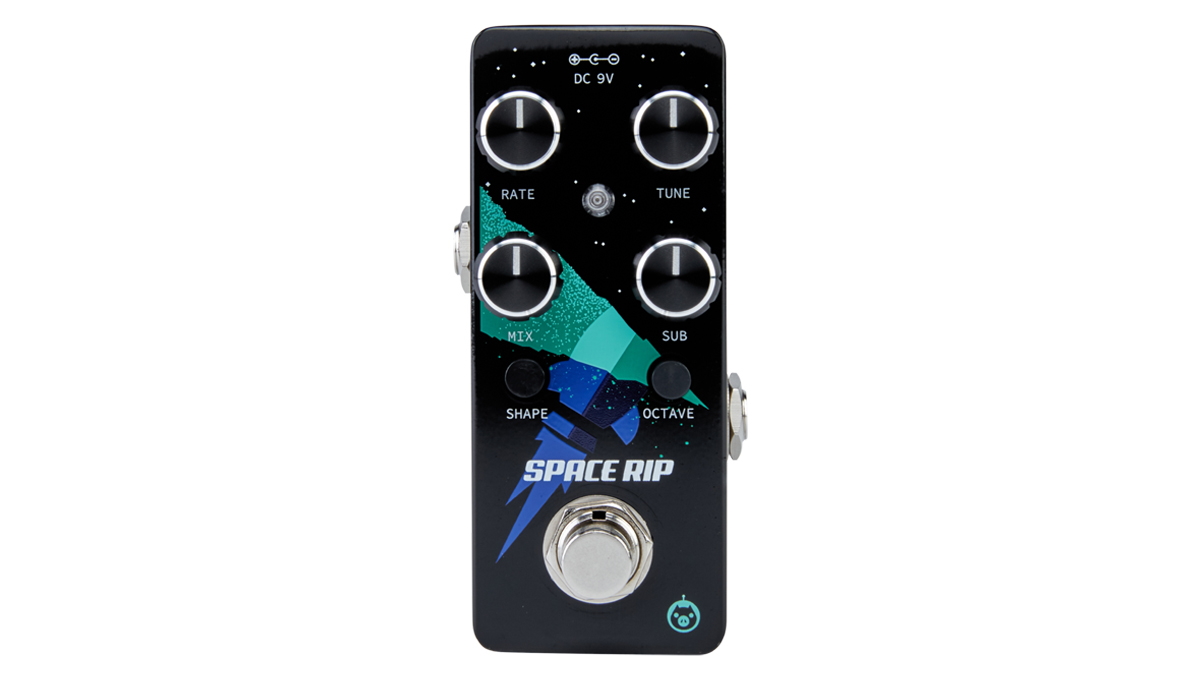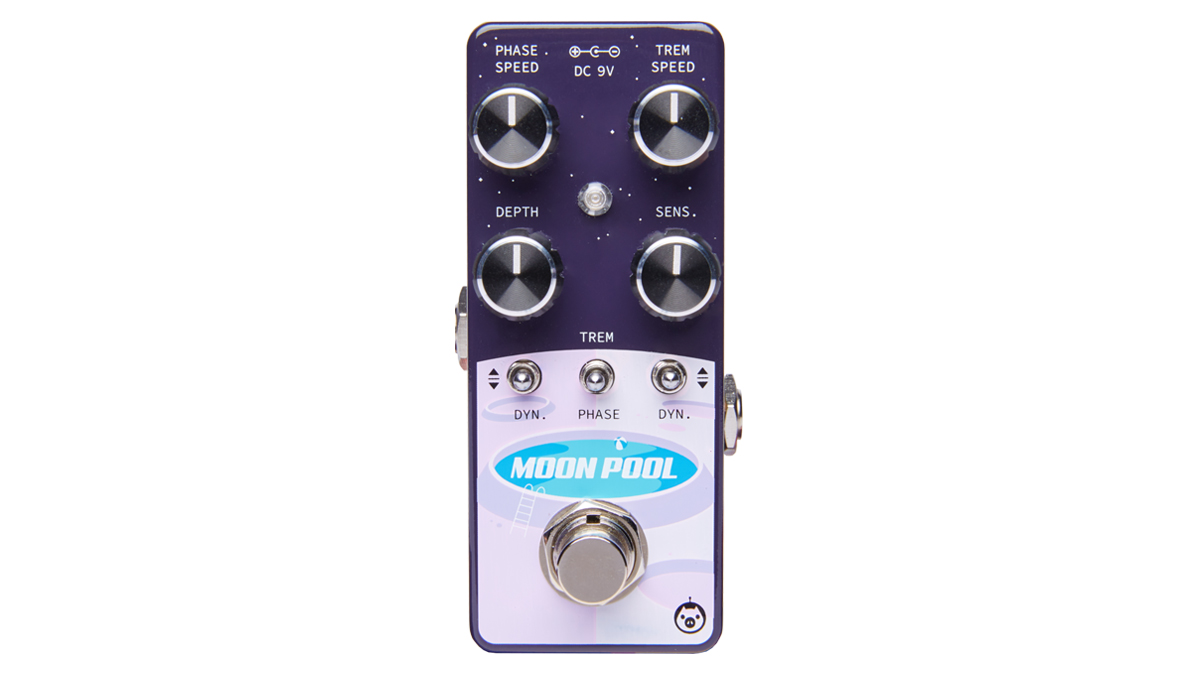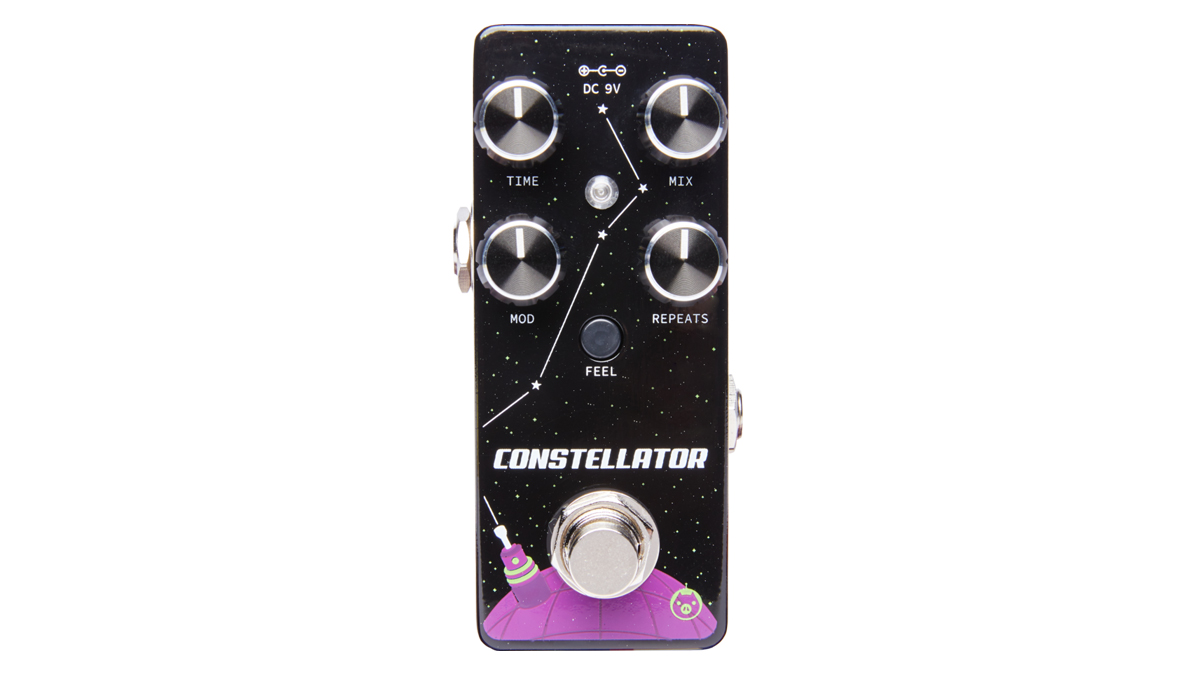Pigtronix Goes Cosmic with New Space Rip, Moon Pool, Constellator Mini-Pedals
These sub-$200 guitar synth, tremvelope phaser, and analog delay units will take your sound to another planet.

All the latest guitar news, interviews, lessons, reviews, deals and more, direct to your inbox!
You are now subscribed
Your newsletter sign-up was successful
Pigtronix has gone decidedly cosmic with its new trio of mini pedals: the Space Rip, Moon Pool, and Constellator.
The Space Rip is a guitar synth, the Moon Pool is a tremvelope phaser, while the Constellator is a modulated analog delay. You can read more about each of the feature-packed (for their size) new mini-pedals below.
Space Rip

The Space Rip specializes in pulse width modulations, with square wave and sawtooth voices, a tracking engine to maximize pitch and minimize latency, and a Tune knob.
Others controls include a Rate switch – which controls the modulation speed – an Octave switch – which drops the synth sound down a full octave – and a Sub switch, which adds an extra voice one octave down.
Moon Pool

An analog tremolo and phaser shifter in one diminutive package, the Moon Pool features a variable bias tremolo design and a four-stage phaser. Independent speed control – dependent on the user's picking intensity – is on hand for both the tremolo and the phaser.
Additional controls include a Trem/Phase switch – which allows players to select either or both effects – two three-way toggle switches, and a dynamically-inclined Sensitivity control.
Constellator

Loaded with self-oscillation capabilities, the Constellator is an all-analog echo that packs up to 600ms of delay time and an adjustable modulation. A feel toggle switch, for additional tweaking of the LFO modulation, comes aboard the mini-pedal as well.
All the latest guitar news, interviews, lessons, reviews, deals and more, direct to your inbox!
The Pigtronix Space Rip, Moon Pool, and Constellator all run on 9V DC power, and are available now for $179.
For more info on the pedals, stop by pigtronix.com.

Jackson is an Associate Editor at GuitarWorld.com and GuitarPlayer.com. He’s been writing and editing stories about new gear, technique and guitar-driven music both old and new since 2014, and has also written extensively on the same topics for Guitar Player. Elsewhere, his album reviews and essays have appeared in Louder and Unrecorded. Though open to music of all kinds, his greatest love has always been indie, and everything that falls under its massive umbrella. To that end, you can find him on Twitter crowing about whatever great new guitar band you need to drop everything to hear right now.
